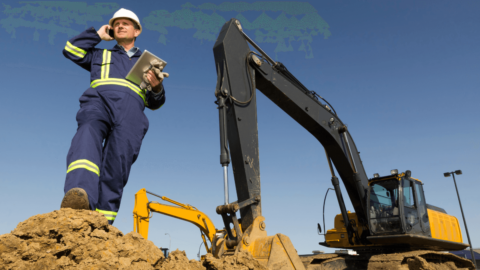Construction is an industry that is constantly evolving, and technology plays a key role in driving these advancements. From improved safety features to increased efficiency, the latest innovations in construction equipment technology are revolutionizing the way projects are completed. In this article, we will explore some of the most cutting-edge technologies that are changing the face of the construction industry.
1. Telematics
Telematics is one of the most exciting technologies to emerge in the construction industry in recent years. This technology allows construction managers to track the location, usage, and performance of their equipment in real-time. By monitoring data such as fuel consumption, engine hours, and maintenance needs, construction companies can optimize their fleet management practices and reduce downtime. Telematics also enables managers to remotely diagnose issues and schedule preventative maintenance, leading to improved efficiency and reduced costs.
2. Autonomous Vehicles
Autonomous vehicles, such as self-driving trucks and drones, are revolutionizing the way materials are moved and monitored on construction sites. These vehicles can operate without human intervention, reducing the risk of accidents and improving overall productivity. Self-driving trucks can haul materials more efficiently than traditional vehicles, while drones can provide real-time aerial footage for project monitoring and surveying. As autonomous technology continues to advance, we can expect to see even greater integration of these vehicles into construction operations.
3. Building Information Modeling (BIM)
Building Information Modeling (BIM) is a process that involves creating digital representations of physical and functional characteristics of a construction project. This technology allows project stakeholders to collaborate more effectively, visualize the project before construction begins, and identify potential design flaws early on. BIM can also help with project scheduling, cost estimation, and asset management, leading to more efficient and cost-effective construction processes.
4. Advanced Materials
Advancements in materials science are also driving innovation in construction equipment technology. From self-healing concrete to lightweight and durable composites, these materials are revolutionizing the way buildings and infrastructure are constructed. Self-healing concrete, for example, can repair small cracks on its own, reducing the need for costly repairs and maintenance. Lightweight composites are also being used in the construction of bridges, buildings, and other structures, leading to stronger and more sustainable construction practices.
5. Augmented Reality (AR) and Virtual Reality (VR)
Augmented Reality (AR) and Virtual Reality (VR) technologies are transforming the way construction projects are planned and executed. AR and VR can be used to create immersive 3D models of buildings and infrastructure, allowing project stakeholders to visualize the end result before construction begins. These technologies can also be used for safety training and simulation, enabling workers to practice hazardous tasks in a controlled environment. As AR and VR technology becomes more accessible, we can expect to see greater integration of these tools into construction processes.
6. Robotics and Automation
Robotics and automation are also making their mark on the construction industry. Robotic systems can be used for tasks such as bricklaying, demolition, and site cleanup, reducing the need for manual labor and improving overall safety on construction sites. Automation technologies, such as drones and 3D printers, can also speed up construction processes and improve accuracy. As robotics and automation technology continues to advance, we can expect to see even greater transformation in the way construction projects are completed.
Conclusion
The construction industry is entering a new era of innovation, driven by advancements in technology. From telematics and autonomous vehicles to BIM and advanced materials, the latest innovations in construction equipment technology are revolutionizing the way projects are completed. As these technologies continue to evolve, we can expect to see even greater improvements in safety, efficiency, and sustainability in the construction industry.
Stay tuned for more exciting developments in construction equipment technology as the industry continues to push the boundaries of innovation!
